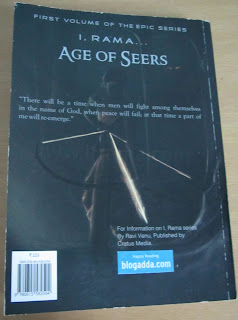"How can you even think of putting your parents into an old age home? How much they sacrificed for you when you were young! How hard they worked to bring you up and to make you what you are today"!
Sounds familiar? The rants about young people not having time for the old, turning very self-centred, selfish and callous? About how the thoughtless aping of Western culture has taken over our society?
Well, think of this. What I am going to say now may not exactly win a popularity contest. But I can say hand on my heart, that while I am still struggling to come to terms with the inevitability of having to eventually move my mother to a place for assisted living (yes, this is where there is a gap between theory and practice and I belong to that generation stuck hopelessly between two totally differing sets of ideologies and don't find it easy), I can see how illogical the above accusations are.
Consider how old we are when we bring our children into this world (or how old our parents were when they brought us into this world). Probably in our 20s or early 30s. What were our energy levels then? I am sure parents who had kids in their 30s would say that it was tougher for them than when they brought up their first kid who was born when they were in their 20s. Contrast this with our age when we have to take care of our parents who are in their late 70s or 80s. Probably 50+. Very likely we have health issues of our own. Our own nestlings have flown the nest and we are struggling to cope with our own challenges.
We invested a lot - mentally, physically, emotionally as well as financially when we brought up our children. Leave aside the expectations (which may now have been belied) that our kids would be around for us, each day they did something silly like plastering their faces with food, throwing things around, taking off their clothes at the check out counter in the supermarket would either make us laugh or at worst cause us mild embarassment over which we could laugh later on. There was a joy in seeing them grow, in seeing the learning process, the development. It was a rewarding job. Fast forward to the care we give our parents. Start from the size - no matter how frail they be. Managing their diapers is the very first comparison. Obviously it is not going to be the same. You can't carry them around and get about your business. (Not everyone can afford domestic help or has a home big enough to accommodate one). They don't gurgle and coo at you. Often one is faced with hostile ingratitude.
You cannot take your bed ridden parents out and carry on with your normal life, let alone show them off like you did your babies. The challenges faced by the caretaker are immense and life comes to a grinding halt, making one sometimes wonder what one is doing. Put your parents in an OAH and get about your normal life, there will be those inevitable moments of guilt at what you have done.
So just quit trying to compare what your parents did for you and even wanting to pay back. Firstly, you cannot repay them for whatever they did for you. Secondly, IT JUST IS NOT THE SAME. Lastly, even if it sounds very ungrateful, insensitive, or whatever you would like to call it, when children arrive into this world, it is out of the parents own choice. It is their pleasure to bring them up. Having brought them into this world, it is their responsibility and duty to bring them up. So while one would always hope that the children would be around for the parents when they need them, one cannot DEMAND or EXPECT a quid pro quo from them.



















